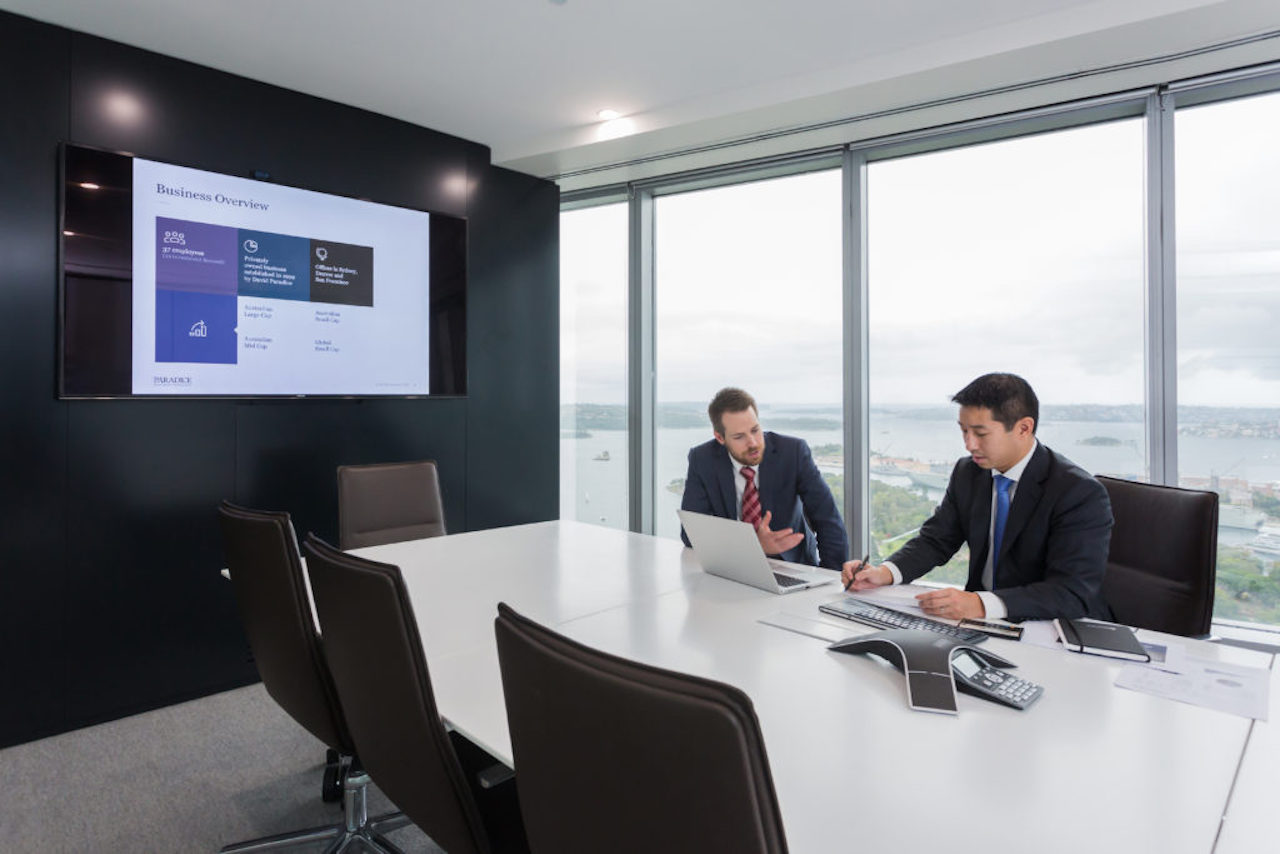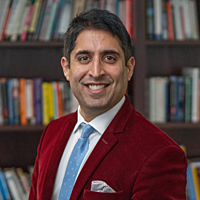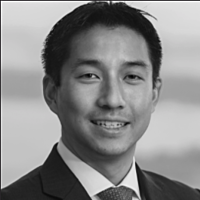Volatility isn’t same thing as risk
When it comes to emerging markets, a preconceived notion among Australians is that the asset class is "too risky".
But Edward Su and Michael Roberge, Co-Managers of the Paradice Investment Management Global Emerging Markets Fund, advocate that investors and advisers alike should separate volatility from business risk. Prices may go up and down, but strong companies will ultimately flourish.
Furthermore, consider the opportunity. The right stocks in developing nations are capitalising on one of the world's great consumption booms and offer domestic investors useful diversification from commodity-oriented and mature companies on the ASX.
In this Fund Manager Q&A, Edward and Michael share their story, why they're excited about emerging markets, their approach to stock/country selection and how COVID-19 is impacting different regions.

MICHAEL ROBERGE AND EDWARD SU
Can you give us some insights into your investment experience and how you came about joining Paradice?
Edward Su:Both Mike and I joined Paradice almost two years ago. Prior to that, both of us were working at Thornburg Investment Management where we first met. Then we later joined Artisan Partners in San Francisco where we helped launch an emerging markets fund there as well. Altogether Mike and I have been working with each other for over eight years now.
When we decided to join Paradice, it was quite an exciting opportunity that David Paradice had pitched to us – we were quite well aligned and like small teams with high accountability. They very much believe in the generalist structure, and they have a performance-driven mindset over an asset-gathering one. When we started, we luckily found solid foundational clients from the Australian superannuation funds, which were willing to give us a go and back us. Today, we manage roughly $400 million, and we're quite pleased with that.
What excites you about emerging markets?
Michael Roberge: Ultimately for us, it really comes down to the massive growth opportunity that we see in the asset class. If you've met with us before, you often heard us talk about structural demand opportunities as a part of our investment process.
I think a lot of people don't realise that nearly two-thirds of the world's GDP growth comes from emerging markets. China alone counts for around 30% of global growth, which is a larger share than Europe, Japan, and the US combined.
But underneath those impressive stats is an undercurrent of very strong secular trends working in your favour. Emerging markets are home to the largest number of people in the world from a demographic point of view. They also have some of the youngest populations. What you're witnessing is a vast migration of these individuals from rural to urban and in this process beginning a journey towards middle income and beyond. For us, that's where things get exciting. It's all about the growth opportunities we see and the exceptional companies taking advantage of them.
What investing lens do you apply to this asset class?
Edward Su: Our investment philosophy is founded on the principle of compounding. As Mike just mentioned, what we're excited about within emerging markets are those structural demand opportunities; a big part of that is the EM consumer and so we focus more on the domestic demand stories within developing economies rather than the old-world and state-owned businesses that are prominent within indices.
Another issue that we found with a fair number of people who we were talking to was that they were less interested in EM because they viewed it as inherently more volatile. But for us, we've always more of a focus on capital preservation and trying to mitigate that downside volatility.
It's our belief that when you combine the domestic demand focus with the goal of mitigating downside volatility, that's how you really drive that long-term compounding.
How do you manage risk within the portfolio?
Michael Roberge: To frame the response to that, one point I want to make is that emerging markets have changed a lot over the last 10, 20 and 30 years: better governance, more institutionalised, more breadth and depth and less commodity driven. So, from the get-go, I think emerging markets as an asset class is in a better spot today than it was in the past. That's the first point.
I think the second point is that volatility isn't, in our opinion, the same thing as risk. Volatility is non-directional. If a stock has a large move downward or upward, it's bucketed as volatile. But risk from our perspective isn't really the danger of prices moving up or down. A lot of that's just noise.
Risk from our perspective is the danger of prices moving permanently downward and that's what we're trying to avoid and mitigate. So, I think it's important to separate price action from actual business risk.
In terms of how we do look to mitigate volatility and risk in the portfolio, remember we're investing in both the stock as well as the currency in emerging markets. We try to mitigate risk at the stock level and at the country level. At the stock level, it's all about the business model. We're looking for quality, sustainably high return on capital, management teams that know how to allocate capital well, strong free cash flow generation, businesses that don't rely heavily on capital markets to fund their business. Then similarly at the country level, we have a framework in place, as I mentioned, that helps us think about countries in a similar way to how we think about companies.
We marry all of that with a strategy of deliberate diversification across geographies, business models and market caps, which really helps us to reduce the correlation risk.
What do you look for in companies?
Edward Su:When we're looking at ideas, we select stocks based on three criteria or three lenses:
- The structural demand opportunity. We're really focused on what is the penetration opportunity? What is the addressable market that we're operating in? We much prefer to play in a market that's growing because we feel like it leads to much less irrational competition.
- Enduring business models, which Mike has already touched on.
- Then the last piece is value realisation potential where we're looking at rolling three year periods to outline how we're going to make money and constantly adjusting that bogey to make sure that we don't fall victim to a value trap.
One idea I'll mention is Reliance Industries. It's a large Indian company that would be roughly $200 billion Aussie dollars in market cap. The company has been going through a transformation from an old economy energy business to a new economy consumer business, and they've invested significantly in telecoms through this asset called Jio.
We feel like this investment is really going to transform the business and make it more of a consumer-driven platform to become a dominant force within India. The industry has fallen from 10 players to just three while COVID-19 has accelerated digital adoption. That is kind of the structural demand opportunity we're looking for.
To finish off, how is COVID-19 impacting the regions and the companies in which you invest in?
Michael Roberge:This is one of the hardest questions to answer in my opinion, because each market is so different. The immediate impact of COVID in emerging markets was a massive US dollar squeeze. It looked kind of like this slow-motion funding crisis in the emerging markets, but the Fed, as we know, stepped in and liquidity conditions have improved. But what we've seen is that many currencies depreciated significantly during that most turbulent part of the sell-off and have yet to recover from the capital flight, which speaks to investor unease over some of the less stable parts of emerging markets.
Broadly speaking by region, you have Asia, particularly North Asia, which looks to be in good shape with ample reserves. In Latin America, the response to the pandemic has been uneven. Healthcare infrastructure is weak. The lower commodity prices have also taken a toll on big exporters in the region. So, it’s very much a mixed bag across EM with some winners and some losers.
At the company level, one must admit that the world is going to look different going forward. While some of this consumer behaviour that we've seen during lockdowns and the pandemic at large will normalise, I think other behaviours will prove very sticky. You have many companies and industries that are well-positioned for this new environment and many others that are really, really struggling.
Wrapping that all up, it goes without saying that the outlook is full of uncertainty at the moment. However, it is our job to navigate that uncertainty to find opportunities within it. We think many companies that are in our portfolio are flourishing in this environment. As Ed mentioned, COVID is accelerating a lot of these long term structural themes that we've highlighted such as digitalisation, consolidation, formalisation to name a few. It’s very much a stock picker's environment and a good time to have an active manager.
Behind price action is treasure in emerging markets
The Paradice difference comes down to accountability, alignment, experience and performance. Click follow here for more investment insights.
3 topics




